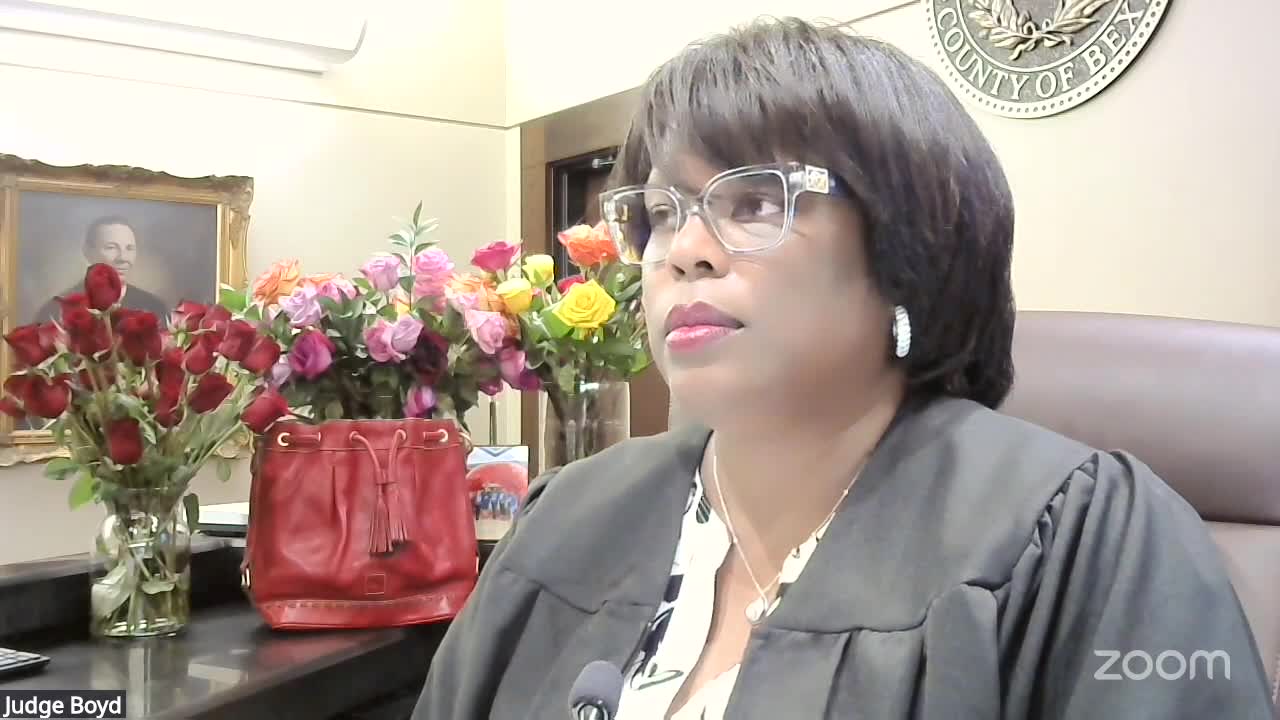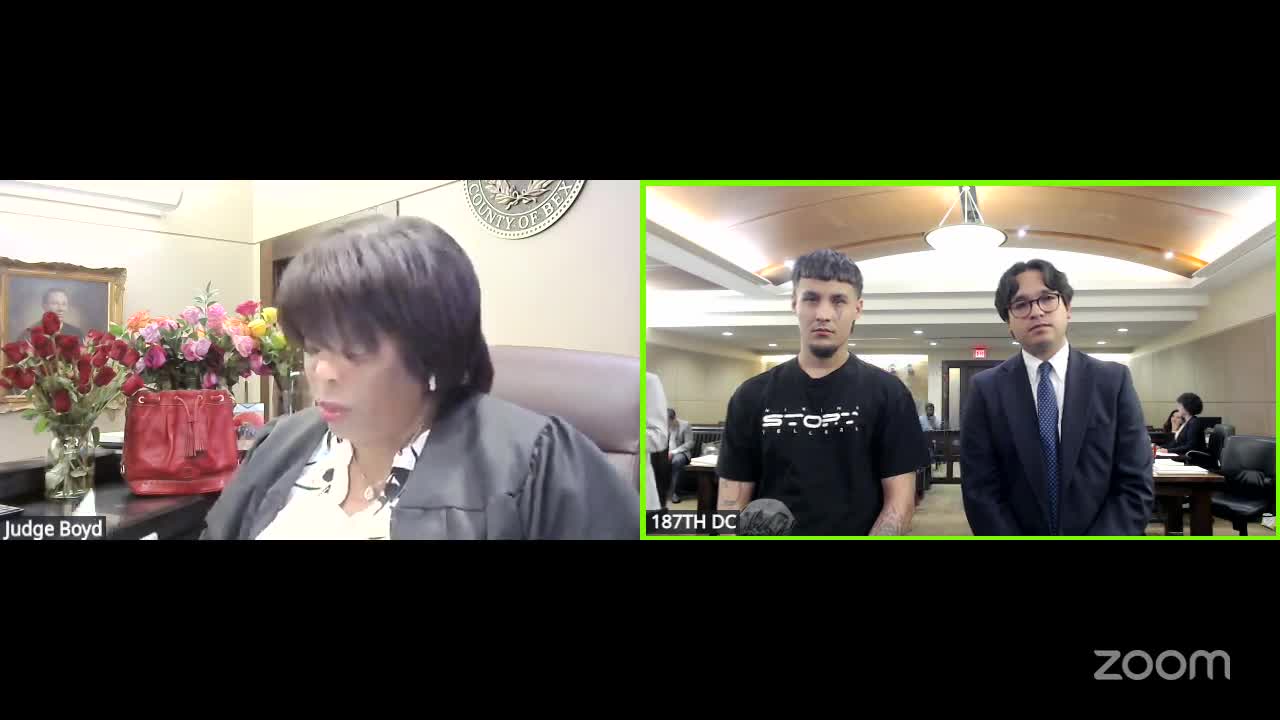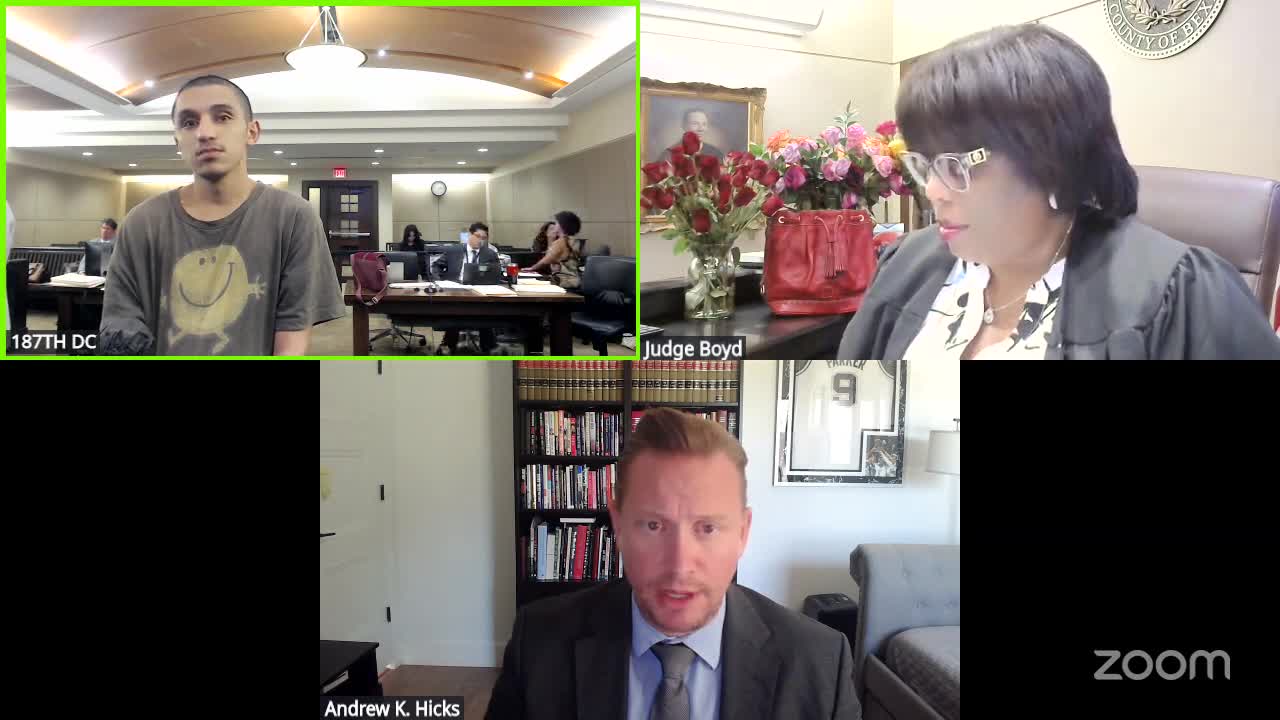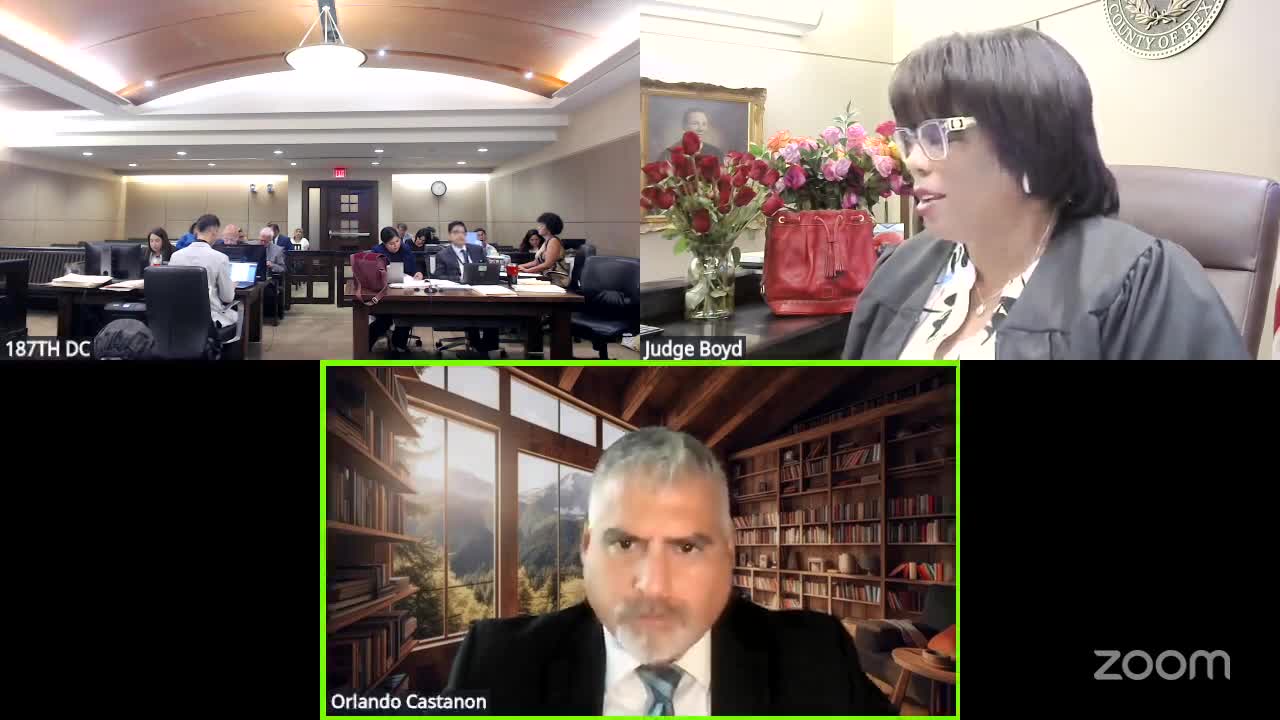Article not found
This article is no longer available. But don't worry—we've gathered other articles that discuss the same topic.

Voir Dire Begins in Aggravated Kidnapping Case; Judge Boyd Emphasizes Presumption of Innocence and Language/Religion Issues

Court Grants Deferred Adjudication for Desmond Gomez, Orders TAP and Mental‑Health Evaluations

Defendant Elijah Rodriguez Sentenced to Eight Months in State Jail After No‑Contest Plea; Court Recommends Therapeutic Community

